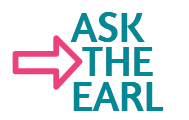Day 9 of 30 – Robert Earl’s Prospective Agent Mentorship Guide – Digital Agent Show
So many prospective real estate agents are so focused on selecting a real estate school that they forget to ask, “What happens after real estate school?” You took the plunge and finished the course. Now what?
Working with the number of prospective agents that I have, I took the time to compile a list of the 12 things that need to happen after real estate school for you to be successful. You can use this as a guide to assist you along the way.
12 Things to do after you finish your real estate classes
- Pass the State / national exam required by the state
- Find a mentor
- Select a brokerage
- Some will say to not get hung up on commission splits. Not true
- Start building your potential buyer and seller database
- Register all of your social media accounts
- Complete your application with the state
- Potentially join Realtor Associations
- Join the local MLS system
- Get registered for new agent training
- Obtain your license
- Start Marketing
- Complete your Post Licensing and Continuing Education Classes
Let’s take a look at each step and share with you why they are important and why some of them have to wait until you have finished the real estate class.
Pass the State / national exam required by the state
After the class you will have to pass an exam required by the state that you wish to be licensed in.
These tests are usually administered by an independent testing company, like PSI. Once you complete the class hours (online or classroom) and have passed the class final exam you will be issued a certificate of completion. This certificate is required by the testing administration to allow you to schedule a time to take the state exam.
What topics are covered in the real estate exam?
The national portion consists of the following sections:
- Property Ownership
- Land Use Controls and Regulations
- Valuation and Market Analysis
- Financing
- General Principles of Agency
- Property Condition and Disclosures
- Contracts
- Transfer of Title
- Practice of Real Estate
- Real Estate Calculations
- Specialty areas
The state-specific portion consists of the following sections:
- Licensing
- Escrow Accounts
- Disclosure Requirements
- Agency Definitions and Relationships
- State Specific Fair Housing Law and Regulations
- Specific Acts Pertaining to Real Estate Practice
Each state has its own criteria for passing. In Arizona the pass rate is 80% or higher. Florida is 70%. Oregon is 75%. You can check your state here: https://asktheearl.com/how-to-become-an-agent/
Because of this exam requirement, I highly recommend that you select a real estate class that includes an exam prep module, like the ones offered at The CE Shop.
This will allow you to take sample tests with the multiple choice questions you can expect to see on the exam during the time period between your class completion and your scheduled exam date.
Find a mentor
If you haven’t done so already, this period would be a great time to find a mentor.
Let’s face it. You don’t know what you don’t know yet.
Relying on your real estate managing broker to be your mentor might end up being a mistake. Their focus on the real estate company might not align with your goals. The same is true when it comes to other agents that are going to be in the office that you join. Do they really want you to succeed in their marketplace as a new agent?
A mentorship program is designed to help you determine your own goals and answer the specific questions that you encounter along the way without the conflict of interest that may arise from other sources.
Select a brokerage
I admit it. I made a big mistake when I selected a brokerage a couple of times before I found the right one. I selected a brokerage that was all about promoting the company brand name and then I selected an online only brokerage in another case.
In both cases, the results were ugly. There is no way to sugar coat it. Both companies cost me a lot of sleepless nights, endless frustration and thousands of dollars in expenses and lost commissions. One still hasn’t paid me for commissions earned.
Selecting a brokerage to hang your license with is one of the most important decisions you can make. This is where a mentor can really assist you.
You want to look for a brokerage that:
- Offers the best possible training, for new and experienced agents.
- Offers the best possible commission split program.
- Is not part of a publicly traded company, yet is large enough to have the resources to focus on its agents.
- Has a system in place to ensure that other agents are incentivized to assist you.
Training
Every real estate company is not designed or structured to work with new agents. This is a fact. You have to do your due diligence and select the real estate company that historically has shown to have the best training in the industry.
Commissions
Some will say to not get hung up on commission splits as a new agent. This advice is off base. You want to ensure that you are with a company that has a consistent commission structure that is a win-win for the company and the agent. You want to be affiliated with the company that has the best commission structure in addition to having the best training available.
Not Publicly Traded
Is the company focused on you as an agent and investing in you so that you can best service your clients or are they focused on their Wall Street investors and their stock price? Avoid them if the answer is not you.
A system of fairness
That incentivises other agents in the company to take time out of their schedules to assist you and shares the profits with the agents that helped grow the company and not just Wall Street investors.
Sharing profits creates a focus on building businesses that are properly managed and accountable as opposed to some companies that feature income or revenue sharing. Revenue sharing systems create silos that may benefit the agent receiving the payment, but does not create an environment or sharing and coop-etition needed to assist all agents at all levels.
Your decision will provide the foundation for your potential becoming a future millionaire real estate agent.
Start building your potential buyer and seller database
If you are working with me as your mentor, we will have already started this process.
Not as many people do Christmas cards (or holiday cards if you prefer) like they used to. I remember that my grandmother had a stack of index cards that had names and addresses on them and every year she would address the envelopes and makes sure that they were delivered in the first weeks of December.
Being a real estate agent is a lot like that.
As soon as possible, you need to make a list of all of your contacts and make sure that you have as much information about them as possible.
Their names, addresses, email addresses and if possible their phone numbers. Being connected on social media is not enough if you really want to communicate and connect with them, so you may have to fill in some gaps in your information.
And don’t forget that unless they are a retired couple in Florida that share the same email address, you need the email address and phone number for each party.
This list will be the foundation of your referral list because these are the people that you have the best chance of already liking you and knowing and trusting you.
They are also most likely to let you know if they hear of someone looking to buy, sell or invest.
Register all of your social media accounts
Either business accounts or personal. It really doesn’t matter which one as long as you are consistent in your branding. If possible, secure a domain name that you can use for your email address. Don’t use the company email address if possible. You are building your brand. You want the control that if you have to change companies, that you can continue to communicate and market to your database.
I suggest that you try to get the same name for all of the major social media services at the same time. Facebook, Instagram, Twitter (beware of the character limit), YouTube and TikTok to name the big ones.
Having a consistent online presence will assist your marketing and ensure that you stand out and are memorable to your clients.
Don’t depend on the company doing this for you.
Complete your application with the state
This is one area where the real estate company that you select should be able to assist you. (Yet I am surprised at the number of companies that leave it 100% up to the agents. I know this from experience.)
Many states require fingerprint requirements, so this would be the time to take care of this and submit your application. Some states allow you to do so before you take or pass your final exam. Once the exam is passed, the testing service will report your scores to the state and your license will be activated with no delay.
An agent centric real estate company will have someone on staff to assist you with completing the application in the proper format to ensure that you are legal and licensed as soon as possible.
Potentially join Realtor Associations
I say potentially just to highlight that just because you are a real estate agent does not mean that you have to join the Realtor Association, although it is advisable.
In some parts of the country, you will not have a choice because membership in the Local, State and National Association of Realtors (NAR) is required in order to join the board controlled MLS system or lockbox system.
The local Realtor board can assist in dispute resolution between agents.
I have my opinions about the value of being a member of the NAR, but I will reserve them for another article. That being said, I would advise you to take this opportunity to join.
Join the local MLS system
The multiple listing system (MLS) is where listing brokers / agents enter their listings for sale. If you are not a member of the service, you will not be able to look up all properties for sale and see the agent only details that are being shared in the system.
Don’t expect to be an agent and just rely on Zillow. It does not include all of the properties (owners are allowed to opt out) and the information is usually out of date.
I have paid my MLS dues quarterly for 20 plus years and it is an investment that has paid me back. Depending on the area that I was selling, at times in my career I have belonged to multiple MLS systems at the same time.
It is just an expense of doing business and serving you clients in the best possible way.
Get registered for new agent training
Because you have selected a real estate company that offers new agent training, you can get registered for the next training cycle. Unlike the pre-licensing classes that are recommended to be taken online, I highly recommend that you clear your calendar to attend as many of these sessions in person as possible. You should also block out time outside of the classroom sessions to study online on your own.
Obtain your license
Once the state has completed the background check, reviewed your application and received the passing exam scores they will issue your license. Most states have a way to check the status of your application online.
Congratulations, you are officially licensed to sell real estate.
Start Marketing
Do not become a secret agent. You need to let people know that you are ready and able to assist them with their real estate questions and needs. Don’t be afraid to pick up the phone or talk to people face to face. Social media is powerful, but don’t fall into the trap of hiding behind the screen.
Complete your Post Licensing and Continuing Education Classes
Every state requires some form of education to be complete shortly after licensing and on a continuing basis.
The CE Shop offers a number of classes that satisfy the state requirements. A majority of these can be completed online. Just make sure that you set aside time to complete the courses. Don’t rely on title company presentations or seminars to satisfy all of the requirements. And don’t wait until the last minute to complete the courses. Get signed up and block off time to complete them as soon as possible.
I know that as of the time that I am writing this, I don’t have to worry about my continuing education classes for another 18 months, but I will schedule time in the next 12 to complete the next batch of courses.
There are other things that need to happen after you finish your real estate course, but these 12 will ensure that you are on the right track. You will sometimes feel like you are drinking out of a firehose with all of the information that you will be receiving, but remember that others have been successful before you and have a road map that you can follow.







